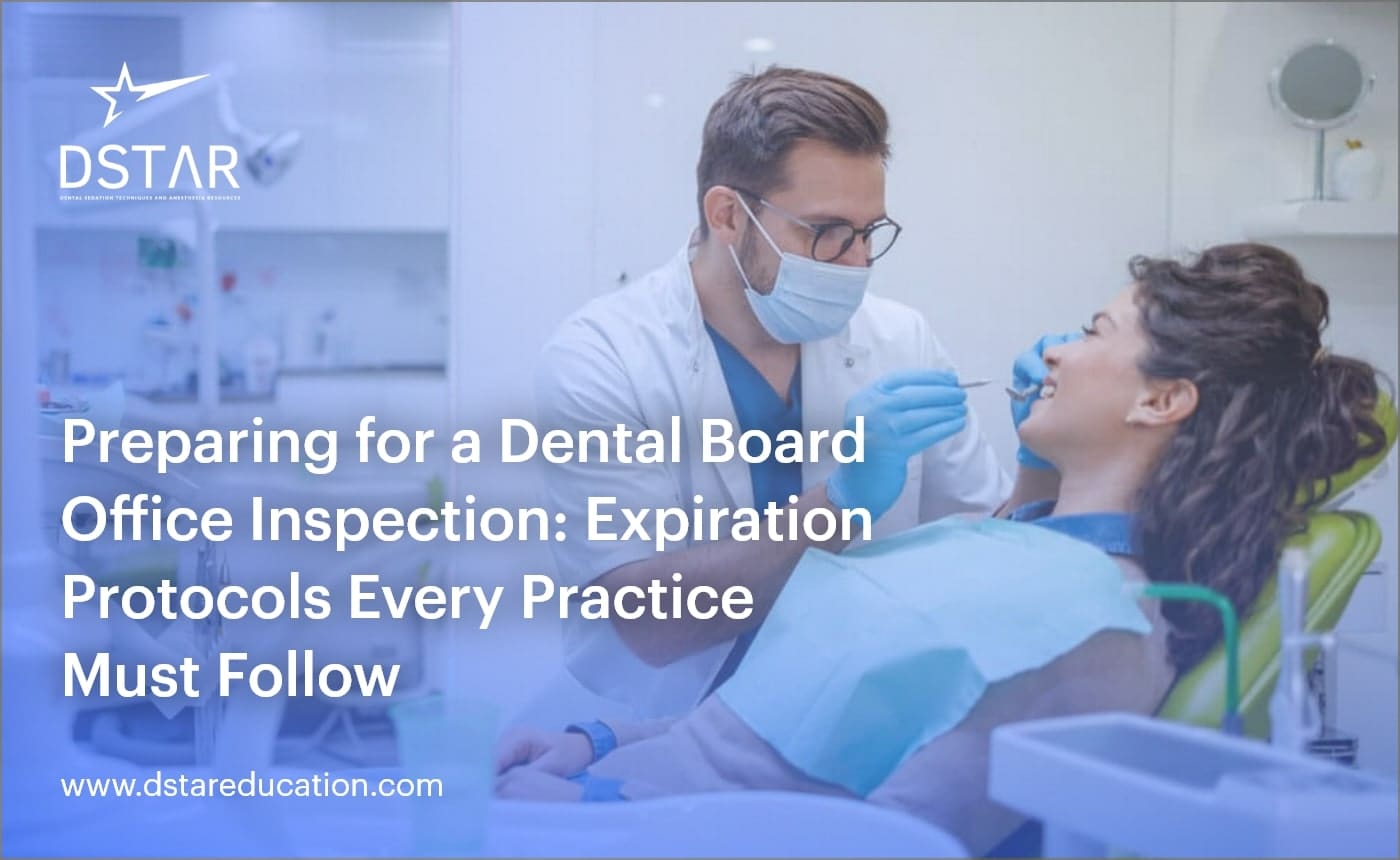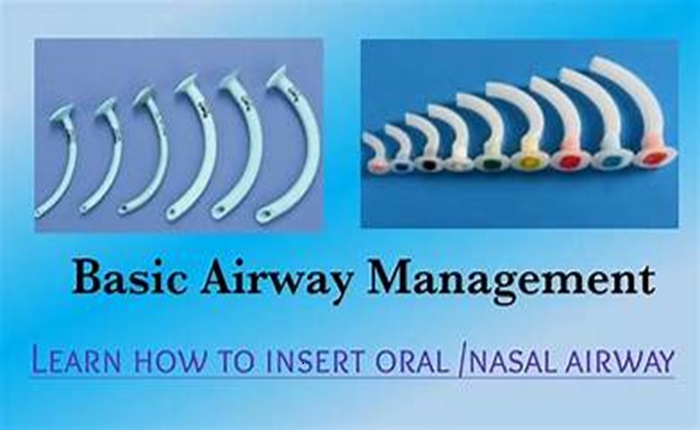The Texas State Board of Dental Examiners (TSBDE) conducts compliance evaluations for dental professionals practicing in the state of Texas. These inspections ensure that dentists meet all operational, safety, and documentation standards applicable to their level of licensure. In one of our blogs, we also added information about states that allow foreign-trained dentists.
Inspectors critically assess the expiration status of drugs, supplies, and emergency equipment during every office inspection. Failure to maintain current, functional, and compliant inventory can result in citations, suspension of sedation permits, or license-related consequences.
This guide outlines the exact list of expiration-sensitive materials dental teams must review and document prior to a scheduled or surprise TSBDE inspection, based on direct instruction from the inspection criteria.
1. All Items Used Daily in the Practice
Inspectors may evaluate commonly used materials and consumables for expiration. These include, but are not limited to:
- Dental anesthetic cartridges
- Composite and bonding agents
- Impression materials
- Topical anesthetics
- Disinfectants and sterilization agents
- Irrigation solutions (e.g., sodium hypochlorite, EDTA)
Staff must ensure all daily-use items remain within expiration dates and store them according to the manufacturer specifications. Staff should immediately remove expired items from clinical areas.
2. All Emergency Medications
Inspectors will check all emergency medications for expiration status. These medications must be immediately accessible and unexpired:
- Epinephrine (1:1,000 and 1:10,000)
- Diphenhydramine (injectable)
- Albuterol (inhaler)
- Aspirin (chewable)
- Nitroglycerin (tablets or spray)
- Glucose (gel or oral solution)
- Naloxone (Narcan)
- Flumazenil (Romazicon)
Practices must replace expired emergency medications before any inspection to avoid violations.
3. All IV Fluids and IV Tubing Sets
If your practice provides moderate or deep sedation, your team must verify the expiration dates of the following IV supplies:
- IV fluid bags (e.g., Normal Saline, Lactated Ringer’s)
- IV tubing sets
- Y-connectors and extension tubing
Staff must seal, sterilize, and monitor all components to ensure they meet the manufacturer’s stated expiration dates.
Do you know that DSTAR Education offers live dental continuing education (CE) courses in Texas, providing dental professionals with interactive, real-time learning opportunities? Available both in-person and via live webinars, these courses enable direct interaction with instructors while meeting state CE requirements.
4. EKG Pads
If your facility monitors patients using EKG equipment during sedation, ensure that:
- EKG pads (electrodes) are sealed, unexpired, and functional
Faulty signal conduction and patient safety risks may result if staff fail to replace expired pads.
5. Defibrillator Pads for AEDs
Every office must have an Automated External Defibrillator (AED). Inspectors will evaluate:
- Adult defibrillator pads: unexpired and connected
- Pediatric defibrillator pads: required if the practice treats children
Staff must ensure both sets of pads remain within expiration dates. Offices treating pediatric patients must have pediatric-specific pads available.
6. Airway Products
Staff must maintain and routinely check all emergency airway devices for expiration. Airway adjuncts are medical devices used to support or create an open airway, particularly when basic airway maneuvers are insufficient or when a patient is unable to maintain their airway.
These include:
- Oral airways (OPA)
- Laryngeal Mask Airways (LMA)
- Endotracheal tubes
- Masks (oxygen delivery and resuscitation)
- Ambu bags (bag-valve-mask devices)
Staff must seal, sterilize, and stock devices appropriate to the patient population served for both adult and pediatric patients, depending on the scope of the practice.
7. Oxygen Tanks and Emergency O2 Tanks
Medical gas supply is an important part of sedation and emergency preparedness. You need to know about all types of sedation. Inspectors will examine:
- Main oxygen tanks: properly labeled and with adequate pressure
- Backup oxygen tanks: present and accessible
The clinical team must inspect all oxygen-related equipment for expiration or required servicing.
Importance of Expiration Protocol Compliance
Each of the categories listed above plays an important role in maintaining readiness for an unannounced TSBDE office inspection. Inspectors expect dentists to demonstrate full command of the inventory expiration control process.
Dental teams must not only replace expired items but also verify that they store, label, and position all replacements correctly for emergency use in the event of a clinical emergency.
To improve compliance and avoid last-minute inspection failures, many dental practices establish recurring internal audits. Assigning a trained staff member to oversee inventory rotation, emergency supply readiness, and expiration tracking is highly recommended. Incorporating this task into monthly quality control ensures continuous preparedness.
Maintaining an updated log of all medications and emergency items—complete with expiration dates and restock dates—adds another layer of documentation that demonstrates compliance.
Conclusion
Preparing for a TSBDE office inspection requires detailed attention to expiration dates across all categories of clinical and emergency inventory. The list provided above reflects the core items that must be in compliance to avoid disciplinary action.
By verifying expiration status, replacing outdated items, and ensuring all emergency supplies are complete and current, dental professionals protect both patient safety and licensure integrity. Adhering strictly to the TSBDE inspection checklist is not only a legal requirement but a professional obligation.
References
- Texas State Board of Dental Examiners – https://tsbde.texas.gov
- Texas Administrative Code – Title 22, Part 5, Chapter 110 – https://www.sos.texas.gov
- ADA Guidelines for Use of Sedation and General Anesthesia – https://www.ada.org
- American Society of Anesthesiologists – https://www.asahq.org
- OSHA Healthcare Emergency Preparedness – https://www.osha.gov
- AAPD Clinical Guidelines on Sedation – https://www.aapd.org
- Journal of Dental Anesthesia and Pain Medicine – https://www.jdapm.org
- American Association of Oral and Maxillofacial Surgeons – https://www.aaoms.org
Frequently Asked Questions
1. Who interprets the State Dental Practice Act?
The Texas State Board of Dental Examiners is charged with interpreting and enforcing the Texas Dental Practice Act.
2. How long do you have to keep dental records in Texas?
By Texas law, adult patient records must be retained for at least five years from the last treatment date; records for minors must be kept until the patient turns 18 plus five years.
3. Which is the first step in developing an administrative quality control plan?
Begin with a comprehensive risk assessment of your current administrative processes to identify gaps and prioritize controls.
4. When a treatment might exceed a specified dollar amount, how should the dental office proceed?
You must obtain a written pre-treatment estimate and patient consent, and secure any required insurance pre-authorization before proceeding.
5. What is the minimum number of Safety Data Sheets that a dental office should have on hand?
Maintain at least one Safety Data Sheet (SDS) for each hazardous chemical used in your office, ensuring every product’s SDS is accessible to staff.
6. What dental assistants are not allowed to do in Texas?
In Texas, dental assistants may not diagnose, prescribe medications, perform irreversible procedures (e.g., cut hard tissue), administer anesthesia beyond nitrous oxide Level I, or undertake any task requiring a licensed dentist’s judgment.
 Take Free TSBDE Anesthesia Jurisprudence Practice Exam Now!
Take Free TSBDE Anesthesia Jurisprudence Practice Exam Now!












